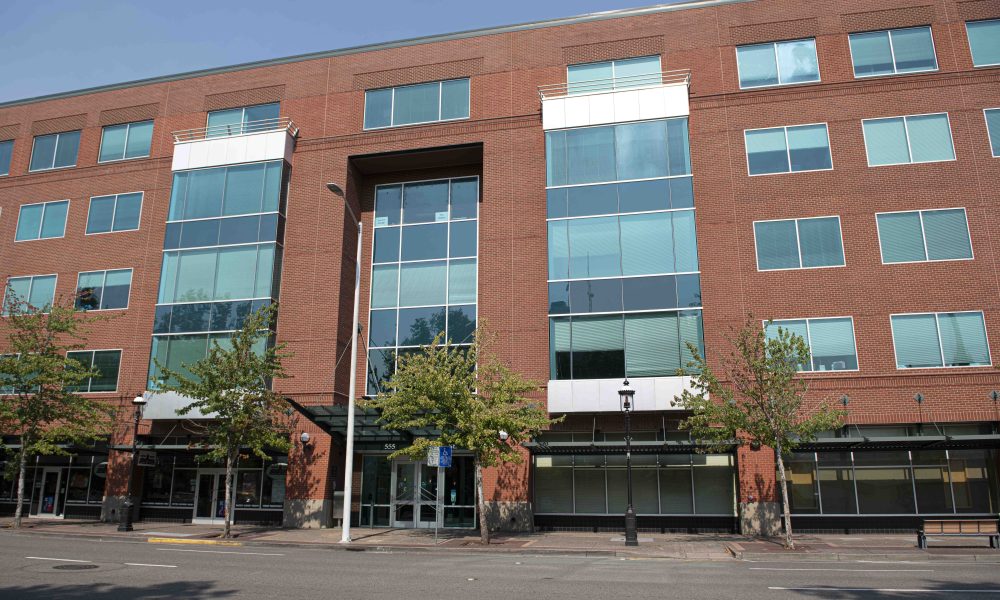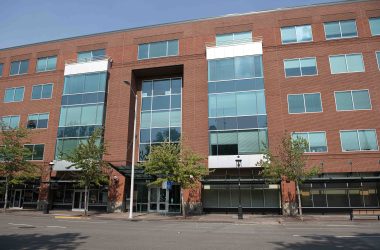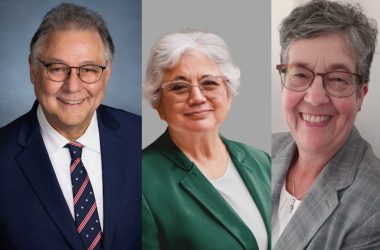The Marion County Board of Commissioners on Wednesday approved a resolution calling for the repeal of Ballot Measure 110, which decriminalized user quantities of illegal drugs and directed part of the state’s marijuana tax revenue toward expanding addiction treatment services.
The measure was intended to take drug users out of jails and get them into clinics. But Marion County law enforcement officials and service providers say the law has backfired, with fewer people now seeking addiction treatment in the absence of legal intervention.
Commissioners unanimously approved the resolution, which called for the state Legislature to take immediate action to revoke the measure.
In 2020, the year Measure 110 was passed, the Marion County Medical Examiner’s Office reported 72 confirmed accidental overdose deaths, according to county data.
That number skyrocketed in 2021 to 131 overdoses. The majority involved fentanyl cases, which jumped from 12 overdoses in 2020 to 40 the next year.
Marion County saw 82 overdoses in 2022, at least 39 of which involved fentanyl.
The county has so far recorded 49 overdoses deaths this year, with another 56 cases of suspected drug-related deaths awaiting toxicology reports, according to county spokesman Jon Heynen. Of those confirmed overdose deaths, 33 involved fentanyl.
National data shows fentanyl-related overdoses are on the rise outside Oregon as well. In 2021, over 71,200 Americans died from overdoses caused by synthetic opioids, primarily fentanyl – a 23% increase from 2020, when there were around 57,800, according to the federal Centers for Disease Control and Prevention.
A New York University Study also found that Measure 110 resulted in fewer arrests for drug possession but not a rise in violent crime arrests, according to reporting from Oregon Public Broadcasting.
“This measure has actually produced the antithesis of what was promised as far as crime reduction, public safety and lives saved,” said Matt Maceira, executive director of homeless service provider Be Bold Ministries, speaking at the meeting.
He said at the meeting that he recently went into a bathroom in the same building where commissioners meet every week and saw three people openly “shooting up deadly, mind-altering substances.”
Maceira himself spent 27 years “in the drug world,” where he said stabbings are commonplace. Earlier this week, he said he spoke with someone in a strip mall parking lot on Northeast Wolverine Street who told him, “I love getting high and stabbing people.”
“These types of things are happening every day, all day long,” he said. “I know that it increases crime, because I was actively a part of those types of things for a significant portion of my life
Eric Rasor, executive director of Keizer-based Soaring Heights Recovery Homes, told the board that he struggled with addiction for nearly 30 years. “I can tell you that being sent to prison for an extended period of time without treatment wasn’t a solution. It’s also not a solution to remove the consequences from drug addiction and the crime that goes with it,” he said. “There needs to be something that gets people into treatment.”
Marion County District Attorney Paige Clarkson said at the meeting that Measure 110 removed police and prosecutors as a bridge to addiction services, calling the measure a “disaster.”
“It is destroying our communities and it is destroying our public safety,” she said. “You do not have to be a data wonk to know that this is not working. You can look out a window.”
Marion County Sheriff Nick Hunter told commissioners that treatment has always been the answer to addiction. “But now what we have unfortunately done is we have disincentivized that treatment,” he said. “What we’re seeing now is that that gateway has shifted, and the gateway now is moving towards more violent crime. It’s moving towards more theft. It’s moving towards more things that are supporting that habit because we no longer have a way to intervene.”
Measure 110 was presented to Oregonians as a question of whether people with addictions should go to prison or get treatment, Board Chair Colm Willis said at the meeting. “Nobody was asked, ‘Do I want to allow drug use everywhere in all public spaces without any consequences?’ But that’s actually what happened,” he said.
Commissioner Danielle Bethell pointed to what she said was another result of the measure – minors are allowed to possess and use illicit drugs while staying out of the reach of juvenile authorities.
Bethell also said the state needs to continue investing a significant amount of money into its treatment system. Even if Measure 110 is repealed, she said, the state money distributed under its name could continue to come from the same source it always has – marijuana tax revenue.
The county has received about $5.3 million through the measure for services including substance abuse treatment, according to state data.
Commissioners also denied a zoning appeal related to a property near Woodburn.
The board unanimously approved or advanced all other agenda items, including bringing in a consultant to plan economic development in the Santiam Canyon, seeking a vendor to design and build a new public safety radio system and broadband network, and accepting state money for specialty court programs including drug and mental health courts.
Original story below:
The Marion County Board of Commissioners on Wednesday will consider approving a resolution calling for the repeal of Ballot Measure 110, which decriminalized user quantities of illegal drugs and directed part of the state’s marijuana tax revenue toward expanding addiction treatment services.
READ IT: AGENDA
When Oregonians passed the measure in 2020 “with the promise of reducing crime, improving public safety, and saving lives,” according to the board’s agenda item. “The evidence shows that Measure 110 has had the opposite effect, leading to an increase in overdose deaths, criminal activity, public nuisance and a diminished quality of life for the citizens of Oregon.”
Commissioners will consider calling for the state Legislature to take immediate action to revoke the law.
They made their case by citing state data on overdose deaths, failure to pay drug tickets and property crimes but made no mention of numbers in Marion County. The county did not immediately respond to questions about such data specific to Marion County.
The county has received about $5.3 million through the measure for services including substance abuse treatment, according to state data.
“Most proponents of repealing or altering M110 continue to support the increased investments to improve access to substance use treatment,” according to Ryan Matthews, the county’s health and human services administrator.
When asked how the resolution would impact Measure 110 funding which the county has already received, Matthews said in an email, “My assumption is that funding would continue but it would certainly be a legislative decision, one I could only speculate on.”
To participate
The commissioners meet at 9 a.m. Wednesday in the Senator Hearing Room at 555 Court Street N.E. Anyone can attend or sign up to give public comment in-person at the meeting. The meeting is streamed live on YouTube.
Santiam Canyon development
The board will also consider a $127,000 contract with consulting firm ECONorthwest to work with Marion County on creating the Opal Creek Promise Implementation Plan.
State legislators in 1996 designated 37,500 acres of forest as the Opal Creek Wilderness and authorized $15 million for economic development in the Santiam Canyon, according to a September news release from Sen. Jeff Merkley’s office. Opal Creek was closed in 2020 due to wildfires and was reopened in August 2022.
The contract would span through June 2024. “The county will conduct extensive research and outreach efforts to ensure that the allocation aligns with the needs and priorities of the North Santiam Canyon communities,” according to the agenda item.
Radio project
The board will hold a public hearing over whether to allow the county’s public works department to contract with a single vendor who would both design and build a new public safety radio system and broadband network.
State and county contracting rules require that the board find there is a public benefit to using an alternative contracting method besides the standard process of designing, bidding then building.
They will vote on the matter after the public hearing.
Also on the agenda
Commissioners will consider accepting money from the state Criminal Justice Commission for specialty court programs retroactive through March 2026.
They will consider accepting about $346,000 for Marion County’s adult drug court, $160,000 for its family treatment court, $160,000 for its juvenile treatment court, $271,000 for its mental health court and $144,000 for its veteran treatment court.
The board will consider buying 12 Malibu sedans totalling $281,000 from Dick Hannah Chevrolet for the Health and Human Services Department to replace vehicles “at end of life,” according to the agenda. The department previously rented vehicles from the state Department of Administrative Services, which ended their program in July.
They will also consider accepting $101,000 from the U.S. Bureau of Land Management under an agreement where the Marion County Sheriff’s Office would continue providing law enforcement services on their land through 2024.
Commissioners will consider approving recommendations by Marion County Law Enforcement Association’s Health Insurance Study Committee to renew health insurance plans for 2024.
The committee meets annually to review health plan renewals and possible changes before making plan recommendations to the board, according to the agenda item.
The board will consider approving a proclamation declaring Oct. 15-21, 2023, as National Hands & Words Are Not For Hurting Week in Marion County.
They will also consider a proclamation declaring the month of October 2023 as Domestic Violence Awareness Month in the county.
Commissioners will also hear a presentation from United Way of the Mid-Willamette Valley about the nonprofit’s community involvement as well as its 2023 employee contribution campaign.
“Contributions go directly to local programs including long term recovery for families from the wildfires, affordable housing, school resource cabinets, and delivery of food boxes to medically fragile individuals,” according to the agenda item.
Contact reporter Ardeshir Tabrizian: [email protected] or 503-929-3053.
SUPPORT OUR WORK – We depend on subscribers for resources to report on Salem with care and depth, fairness and accuracy. Subscribe today to get our daily newsletters and more. Click I want to subscribe!

Ardeshir Tabrizian has covered criminal justice and housing for Salem Reporter since September 2021. As an Oregon native, his award-winning watchdog journalism has traversed the state. He has done reporting for The Oregonian, Eugene Weekly and Malheur Enterprise.









